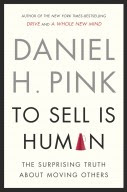Firebrand has declared near-field communication (NFC) the "new transformative technology that will change marketing forever."
According to the firm, three applications will drive the transformation:
Tags. "This is where marketing can shine," Firebrand says. "You see a poster of the latest blockbuster Hollywood movie at a bus shelter. You then tap the NFC tag to view the movie trailer, download an app or game associated with the film, and buy the movie ticket instantly. Wow!"
Sharing. Consumers bumping their peers' smartphones "will be the way customers share branded information."
Payments. Bye, bye credit cards! You'll use your phone to pay for almost everything, "from purchasing a bus or train ticket, taxi fare, buying a Coke at a 7-11 or paying for your groceries at the checkout."
"NFC is going to make your advertising and marketing so much more effective, as it brings the digital world into the real world," the firm says.
Customers will walk into a retail store, tap an NFC tag on a product to open a price comparison Website, see real-time ratings and reviews of the product on social media, and buy it.
"All marketing collateral will feature an NFC tag (replacing the cumbersome website URL or phone number) that prompts you to download more information," the firm predicts.







